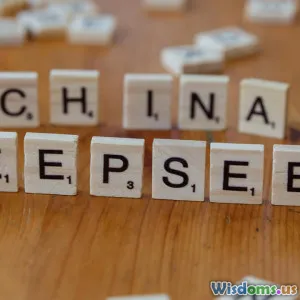
Can Artificial Intelligence Write a Truly Good Novel
7 min read Explore whether AI can craft novels that resonate with human depth and creativity. (0 Reviews)
Can Artificial Intelligence Write a Truly Good Novel?
Introduction
Imagine picking up a novel and discovering it was written not by a seasoned author, but by an artificial intelligence (AI). This notion, once relegated to the realm of science fiction, is becoming increasingly tangible with the rapid advancements in natural language processing and machine learning. But the crucial question remains: can AI write a truly good novel—one that resonates emotionally, captivates readers, and stands as a work of art rather than mere algorithmic text? This article delves into the evolving capabilities of AI in literature, exploring the boundaries of creativity, the essence of authorship, and the prospects for AI-generated novels.
The Rise of AI in Creative Writing
From Automation to Storytelling
Artificial intelligence entered the literary domain initially to automate routine writing tasks, such as generating news reports or converting data into readable summaries. However, with the advancement of deep learning models like GPT-3 and beyond, AI systems gained the capability to produce not just factual writing but creative narratives.
For example, in 2016, a Japanese AI co-authored a sci-fi novel titled "The Day a Computer Writes a Novel," which passed preliminary screening for publication. While the work needed human editing, it marked a milestone, demonstrating AI's initial storytelling potential.
Current Capabilities and Limitations
Today’s AI models can generate coherent prose, build characters, and even craft complex plotlines. Yet, despite the impressive output, they still struggle with depth of thematic exploration and genuine emotional nuance—the very ingredients that make novels impactful.
OpenAI’s GPT-3 can write compelling paragraphs, yet it is essentially a statistical model predicting word sequences based on vast datasets. It lacks consciousness, personal experience, and true understanding, which impedes its ability to imbue stories with authentic humanity.
Dissecting What Makes a Novel "Good"
Beyond Grammar and Plot
A truly good novel transcends well-structured sentences and an engaging plot. According to literary scholar Carmen Boullosa, renowned novels resonate because they "capture human experience with nuance, insight, and originality." Elements such as voice, style, thematic depth, cultural context, and emotional engagement combine to create lasting impact.
In addition, subjective elements like authorial intent, cultural relevance, and reader interpretation deeply influence how a novel is perceived.
Can AI Capture Emotional Depth?
AI’s core challenge lies in constructing narratives that evoke empathy and introspection. Unlike humans, AI has no personal memory or feelings to draw upon. While it can mimic emotional language, it often results in shallow or formulaic expressions.
A 2022 study by the University of Toronto analyzed AI-generated poetry and found that while syntactically correct, many outputs lacked originality or emotional complexity—a gap presumed relevant for longer works like novels.
Examples of AI-Generated Novels and Their Reception
Pharmako AI
Pharmako AI is a novel written collaboratively by human and AI, revealing an experimental melding of creative forces. Although innovative, readers and critics noted its uneven pacing and occasional lapses in coherent character motivation, highlighting current AI creativity boundaries.
1 the Road
Written by an AI trained on Jack Kerouac’s style, 1 the Road attempted to emulate the Beat Generation's spontaneous prose style. While stylistically intriguing, critics noted the novel felt disjointed and lacked the existential depth found in Kerouac’s original work.
The Human-AI Collaboration Model: A Promising Avenue
Augmenting Creativity, Not Replacing It
Many experts suggest that rather than viewing AI as a standalone novelist, it is more fruitful to regard it as a creative partner. By generating drafts or suggesting plot ideas, AI can enhance human imagination and help authors overcome writer’s block.
Novelist Robin Sloan famously used AI tools to brainstorm metaphors and narrative twists, resulting in a hybrid work recognized for its originality.
Ethical and Artistic Considerations
Collaboration raises questions about authorship, intellectual property, and authenticity. Who owns the content—author, AI developer, or both? Additionally, preserving the human touch in literature remains an ongoing priority.
Future Perspectives
As AI models evolve, we may witness incremental breakthroughs in their emotional intelligence capabilities through multimodal learning and affective computing. Eventually, AI-generated novels could convincingly simulate human emotion and creativity.
However, whether AI can genuinely experience or innovate, instead of emulating human output, remains speculative. For now, the art of storytelling deeply entwined with human consciousness keeps literature a predominantly human domain.
Conclusion
Can artificial intelligence write a truly good novel? At present, AI demonstrates impressive technical skills in generating narrative and dialogue but lacks key components that define literary art: authentic lived experience, emotional resonance, and genuine creativity. While AI can produce intriguing and sometimes innovative textual experiments, it is best viewed as a collaborative tool that augments human authors rather than replacing them.
The future of literature might embrace AI as a new brush in the writer’s toolkit, enriching storytelling and opening new frontiers—but the heart of the novel, with its profound exploration of human nature, still beats strongest in the hands of human authors.
In essence, AI is not yet ready to write the literary classics of tomorrow, but it is certainly reshaping how stories are born in the 21st century.
Rate the Post
User Reviews
Popular Posts




















